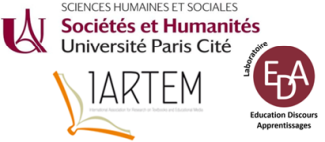E-textbooks, also known as electronic textbooks, refer to digital versions of traditional printed textbooks that can be accessed using electronic devices such as tablets, laptops and smartphones. E-textbooks are the complete creation of a textbook in an electronic format that can be used by students in the same format. This study examines the transformative impact of technology on education and focuses specifically on the urgent need for educational publishers to distribute e-textbooks to secondary schools in Ghana. It addresses the challenges facing the Ghanaian secondary school system, such as limited access to up-to-date textbooks, while highlighting the potential of digital technology to bridge this gap. The main objective of this study is to investigate the effectiveness, cost-effectiveness and influencing factors associated with the introduction of e-textbooks in the Ghanaian secondary education system. By assessing the benefits and challenges of e-textbooks, this study not only aims to improve the education by assessing the benefits and challenges of e-textbooks, this study aims to inform not only educational publishers but also policymakers and stakeholders about the potential advantages of transitioning from traditional print textbooks to digital alternatives. The researcher employs the mixed-method approach where 254 students were made to complete a survey on the study including 11 teachers from the selected secondary schools and 12 educational publishers operating in Ghana were interviewed for the study. Data were analysed from the administered questionnaire and the interview conducted while the results of the questionnaire and interview were separated. The findings of this study indicate that e-textbooks offer long-term cost savings when compared to traditional print textbooks. Additionally, the research identifies several crucial factors that influence the adoption of e-textbooks in Ghanaian secondary schools, including digital infrastructure and teacher support. These findings underscore the importance of investing in digital technology and teacher training to ensure the successful implementation of e-textbooks. This research strongly recommends the adoption of e-textbooks in Ghanaian secondary schools as a viable and beneficial proposition. It also emphasizes the necessity of collaborative efforts between educational publishers and the Ghanaian government to facilitate the widespread distribution of e-textbooks.
- Poster

 PDF version
PDF version

